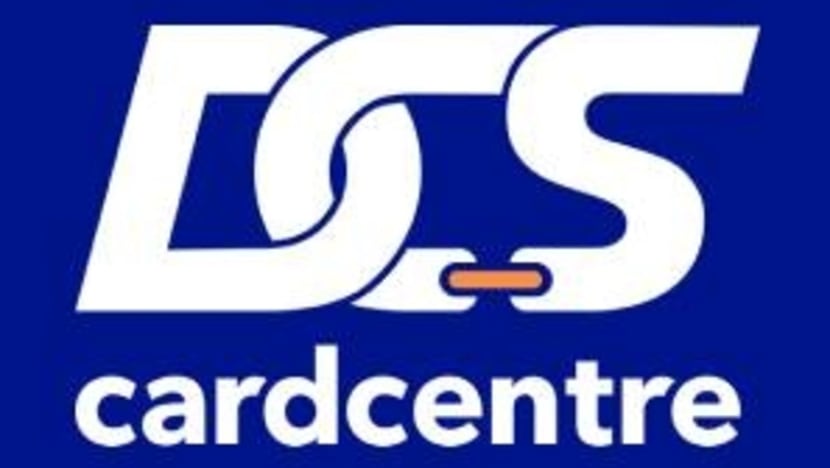FAQ: What you need to know about DCS Card Centre and its shift from just a card issuer to a fintech provider

The logo of DCS Card Centre, formerly known as Diners Club Singapore. (Image: Facebook/DCS Card Centre)
SINGAPORE: DCS Card Centre, formerly known as Diners Club Singapore, is back in the spotlight following Member of Parliament Tin Pei Ling's announcement on Monday (Oct 2) that she will lead strategic partnerships and business development at the financial institution.
The MP said in August she was leaving her position at Grab, seven months after attracting public scrutiny and questions over a possible conflict of interest.
Here is what you need to know about DCS and how it is rebranding itself, after years of losing market share to competitors like American Express, in a bid to meet the changing demands of consumers, merchants and corporations.
What is DCS Card Centre?
DCS has a storied history in Singapore, with its beginnings as an exclusive franchisee of United States payment services company Diners Club International and issuing Diners Club cards exclusively.
"Diners Club Singapore was actually one of the pioneers of cashless payments in Singapore when it launched the first charge card back in 1973," said CEO Karen Low in a press release in August this year.
A 1989 report in The Business Times said there were 28,000 Diners Club card members in Singapore at the time, but its market share eroded in the 1990s and 2000s as other players like Visa moved ahead with more attractive promotions and rewards.
In July 2021, Singapore-based electronic payment solutions provider Ezy Net fully acquired Diners Club Singapore from Malaysian investment holding company Johan Holdings for S$103.6 million (US$75.4 million).
Before the sale, Diners Club Singapore and its subsidiary DinersPay DPPL recorded combined losses of US$656,000 in 2018, US$5.2 million in 2019 and US$3.04 million in 2020, The Edge Malaysia website reported.
In October 2022, Diners Club Singapore was renamed DCS Card Centre, with the company saying it had "evolved to a fintech that will lead the next payment frontiers with future-ready payment solutions".
Why the pivot?
Singapore's adoption rate of cashless payments is the highest in Southeast Asia at 97 per cent, based on payment methods at Singapore retail points-of-sale in 2022, according to a 2023 survey published by German statistics company Statista.
The level of competition here presents challenges for DCS Card Centre, and Ms Tin has said that she will help to drive future market expansion in her new role.
In an interview with Tech in Asia in August this year, Ms Low said she intends to double their 300,000-strong card base in Singapore in the next two years.
To do so, DCS has widened its card issuance scope to include other international and more prominent payment networks, including Union Pay, Visa and Mastercard, with plans to add JCB.
Additionally, it will provide card-acquiring services for Alipay, Singapore Quick Response Code (SGQR) and WeChat Pay, and it continues to be the only issuer of Diners Club cards in Singapore.
It had previously also boosted its card offerings through the issuing of co-brand credit cards with retailers such as Sheng Shiong and Don Don Donki, and vehicle inspection firm VICOM.
What can customers expect from its fintech solutions?
There has been an acceleration in market demand for quicker, cheaper and more convenient payment solutions, Ms Low noted in the press release. Payment trends are also emerging with increased interest in the development of digital assets for transactions, she added.
As such, DCS has introduced virtual accounts, allowing cardholders to receive funds from any bank account.
It also now offers cash advances, loans and instant settlement, and there are plans to help companies set up payment-related services.
DCS has identified "underserved segments" who are unable to obtain credit through traditional channels. These may include those who wish to leverage their digital assets for card transactions to access traditional credit, Ms Low told Tech in Asia.
It is piloting a crypto payment token called DUS, which is pegged to the US dollar at a one-to-one ratio. Other cryptocurrencies like Bitcoin can be converted into DUS through third-party exchanges.
When stored on its platform, the balance can be used to increase cardholders' spending limits or to make payments for outstanding balances.
Corporate products and services targeted at small and medium enterprises, and supply chain financing are also in the pipeline, as is a mobile app that allows its merchants to access valuable transaction data in real time.
How is DCS Card Centre able to offer a range of financial services?
DCS, along with American Express, is one of two non-banks that are licensed to issue credit and charge cards, governed by the Monetary Authority of Singapore (MAS) under the Banking Act.
According to the press release, this gives DCS the "same empowerment to provide a range of financial services as defined by its credit and charge card licence, minus the huge overheads of full banks".
Competitors like Mastercard do not issue cards directly to the public but rather through financial institutions like banks, while other fintech payment firms licensed by MAS as major payment institutions can only issue debit cards.















